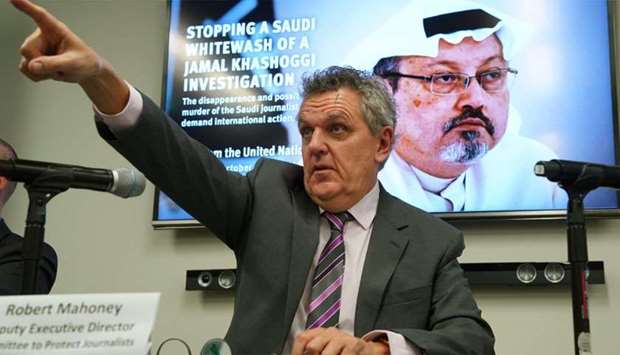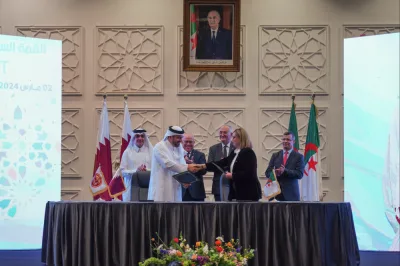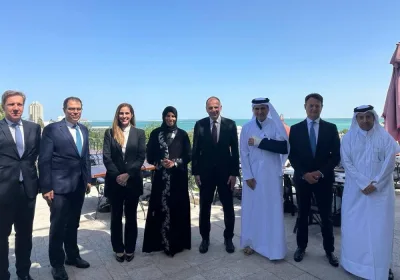Two weeks after he disappeared, The Washington Post on Wednesday published what it said appears to be Jamal Khashoggi's final column, in which the missing Saudi journalist wrote of the importance of a free press in the Arab world while praising Qatar.
Citing crackdowns on the press by Egyptian and Saudi officials, Khashoggi warned such actions "no longer carry the consequence of a backlash from the international community".
Khashoggi wrote that the "ripe" hope of future freedoms felt by many during the Arab Spring of 2011, which saw popular uprisings throughout the Middle East, had been "shattered".
"There are a few oases that continue to embody the spirit of the Arab Spring. Qatar's government continues to support international news coverage, in contrast to its neighbours' efforts to uphold the control of information to support the 'old Arab order'," he wrote.
"The Arab world is facing its own version of an Iron Curtain, imposed not by external actors but through domestic forces vying for power," wrote the Post contributor and US resident,who disappeared entering Saudi Arabia's consulate in Istanbul on October 2.
"The Arab world needs a modern version of the old transnational media so citizens can be informed about global events. More important, we need to provide a platform for Arab voices," Khashoggi wrote.
"Through the creation of an independent international forum, isolated from the influence of nationalist governments spreading hate through propaganda, ordinary people in the Arab world would be able to address the structural problems their societies face."
"Arab governments have been given free rein to continue silencing the media at an increasing rate," he wrote.
"There was a time when journalists believed the Internet would liberate information from the censorship and control associated with print media. But these governments, whose very existence relies on the control of information, have aggressively blocked the Internet.
"As a result, Arabs living in these countries are either uninformed or misinformed. They are unable to adequately address, much less publicly discuss, matters that affect the region and their day-to-day lives."
The ultimate fate of Khashoggi - whose writings have been critical of Saudi Crown Prince Mohamed bin Salman - is still unknown, but leaks by anonymous Turkish officials have painted a picture of him allegedly meeting a grisly demise in the consulate at the hands of Saudi agents.
Saudi Arabia has denied to the United States having knowledge of what happened at the consulate.
In the introduction to Khashoggi's column - which was accompanied by a photo of the smiling writer - the Post's Global Opinions editor Karen Attiah said the newspaper held off on publishing it in the hopes that he would return.
"Now I have to accept: That is not going to happen. This is the last piece of his I will edit for The Post," Attiah wrote.
"This column perfectly captures his commitment and passion for freedom in the Arab world. A freedom he apparently gave his life for."



